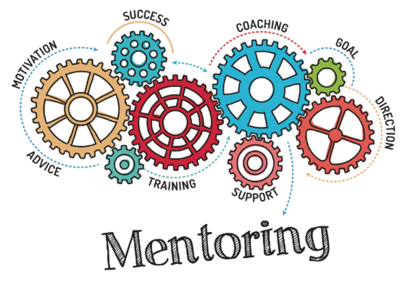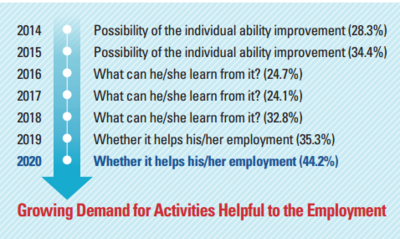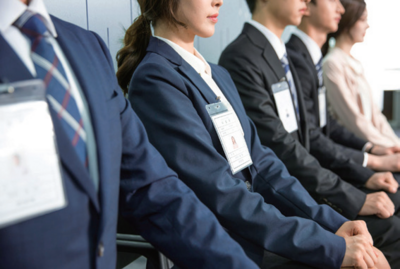With summer just around the corner, college students tend to engage in various off-campus extracurricular activities to spend their vacation meaningfully. Among a lot of public activities, in the case of the university student’s mentoring program, Kingos take part in united clubs such as Youth Factory and Major League School as well as mentoring programs run by enterprises or foundations. Therefore, through this article, the Sungkyun Times (SKT) will examine the advent of college mentorship programs, their effects, their problems, and possible solutions.
What Are College Mentorship Programs?
Mentorship Programs over the Years

College mentorship programs refer to a program in which a university student, the mentor, is paired with the mentee, a younger adolescent. The mentor serves as a tutor and a role model for the mentee and provides intellectual and emotional support. The advent of college mentorship programs in Korea dates back to 2006, or, “the first year for solving the education gap,” as announced by the Ministry of Education. The Ministry then constructed a deliberate educational safety net and implemented a pilot program. The initial goal of the program was to alleviate the education gap by connecting children from disadvantaged backgrounds and university students to provide personalized guidance. Nowadays, aside from the central government, municipalities have also been proceeding with mentoring programs that focus on multicultural children. For instance, this April, Daejeon Dong District set up a business relationship with the Multicultural Family Support Center. Furthermore, enterprises trying to take social responsibility have also implemented various mentorship programs. For instance, KB Kookmin Bank has operated programs such as “KB Hope Study Room” since 2007, which is an educational guiding program. POSCO Energy also revealed a plan to recruit “Hope Energy” volunteers composed of university students and help children in local children’s center until this September.
Positive Effects of the Program
Firstly, college mentorship programs aid university students, the mentors, to achieve personal growth. “I participated in a group mentorship program in which I had to lead ten mentees. It was an opportunity to learn about self-management skills, and when my mentees reacted positively to my words, it filled my heart with pride,” said Koo Min-young, a Sungkyunkwan University (SKKU) student majoring in Economics. Koo is currently participating as a mentor in Samsung Dream Class, a well-known college mentorship program. Hence, through college mentorship programs, students can develop self-management skills and enjoy a sense of achievement. On the other hand, students can also apply their major-specific knowledge by participating as a mentor. According to research by Professor Hyun Yeong-sup of Kyeongbook National University, college mentorship programs allow university students to cultivate career adaptability skills; thus, students can learn to quickly adapt to dynamic career environments. Students can also receive scholarship benefits offered by the foundation. For example, the Korea Student Aid Foundation (KOSAF) provided scholarships to students who participated in the “Social Leader University Student Mentorship” program. This aids students to alleviate the burden of living expenses and college tuition fees. In a survey conducted by KOSAF on the mentorship program, 89.7% of students answered that they were satisfied with the program, and 95.1% said they would be happy to re-participate.
Dark Sides of the Mentorship Program
Degeneration into a Means of Employment

Nowadays, the college mentorship program has deteriorated to just an additional line in the applicant’s resume. Most students that apply as mentors tend to see the program as merely a way to expand their resumes. According to University Tomorrow 20’s Lab, in 2021, “volunteering” and “education” were the second and third most operated off-campus extracurricular programs. However, students also chose “beneficial towards employment” as the most considerable factor when applying for an extracurricular activity. This is ironic, as the original intent of the mentorship program included the mentor’s self-growth, a sense of achievement, and the promotion of public spirit. An anonymous student from the University of Seoul majoring in international relations said, “I had applied to the college mentorship program so that I could diversify my job resume even more.” Like this, if mentors participate in mentorship programs without an inherent will, students will not be able to achieve self-growth. According to a study by Lee Mi-young, an assistant professor at Howon University of the Department of Social Welfare, college mentorship programs should be run with college mentors’ sincerity. Only through programs operated with their sincere intent will students be able to achieve the role of a mentor.

Problems Caused by No Mentors

In addition, there are also problems caused by the lack of an institutional basis. Many mentorship programs these days only last for a short time. In such cases, the mentor and mentee only meet up less than ten times, which inhibits both participants from really getting to know each other. Furthermore, student mentors have expressed complaints about the fact that there were no specific guidelines or basic education on how to proceed with the mentorship program. According to research by Professor Park Soo-hong of Pusan National University, although the institution may provide the mentor with prior education, the curriculum does not include important information, such as how to acquire core abilities to apply to real-life situations. Most of the curriculum is composed of futile theoretical facts, such as the definition and origin of mentorship. With no specific guidelines, student mentors are forced to carry the burden of the whole mentorship process without any reference data. The Mentoring Center of the Korea National Council on Social Welfare pointed out that there is still no customized guideline and curriculum for various targets and subjects, so there is a problem that each institution has to provide the education by itself.
The Future of Mentorship Programs
For Better Mentoring
Student mentors should participate in the program with responsibility and retain from applying for college mentorship programs as a means of employment. Only with the participation of a responsible mentor can be conducted successfully. To raise mentors’ sense of responsibility, prior education explaining the inherent purpose of mentoring programs is needed. the institution should focus on motivating the mentor to participate more actively in the mentorship program. According to the “Mentoring Education Program” data from KOSAF, students that participate in mentorship programs in the Korea Youth Counseling Institute (KYCI) must go through a prior educational process. The curriculum devotes a great deal of weight to making mentors understand the meaning of “mentoring” as well as the inherent purpose of the program. Furthermore, as the mentor is provided with a thorough education on the program itself, this allows the mentor to further bond with the mentee. Like this, other institutes must adapt a prior educational process.
Improvements in the System
For better implementation of mentorship programs, basic education after the recruiting process is required. For example, mentorship programs in Australia require the mentor to go through six hours of basic educational training after recruitment. Furthermore, mentorship programs are carried on for at least a year, which allows the mentor and mentee to build enough bonds with each other. If the same process is implemented in Korea, many of the problems mentioned above could be solved. For instance, providing mentors with proper guidelines and composing a deliberate curriculum to educate them should become mandatory in Korea. Furthermore, instead of focusing on abstract and theoretical factors, institutions should focus on practical factors that mentors could apply to real-life situations. Providing mentors with useful, up-to-date data, much like how KOSAF shares various mentorship cases by gathering each institution’s educational data, can be one of the solutions. Finally, Korea’s mentorship programs should also be run for at least a year or longer. This way, the mentor will actually become the mentee’s role model – a perfect correspondence to the word mentor. According to the Mentoring Center of the Korea National Council on Social Welfare, education for mentors should be improved institutionally, so a united guideline and curriculum should be prepared. Also, as the mentorship program is influenced by the mentor’s awareness and ability, the arrangement of educational support for the mentor’s empowerment, motivation, and compensation system is essential.

The mentoring program is meaningful as a public activity that university students only take part in as students, and they can assist children and develop themselves through the progress. However, at the same time, there are difficulties caused by a lack of a mentor’s responsibility or weak spots of institutions. So, there needs to be continued attention to the purposes of the program to be fully realized, so that the program becomes meaningful to both the mentor and mentee and has a positive influence on society.
